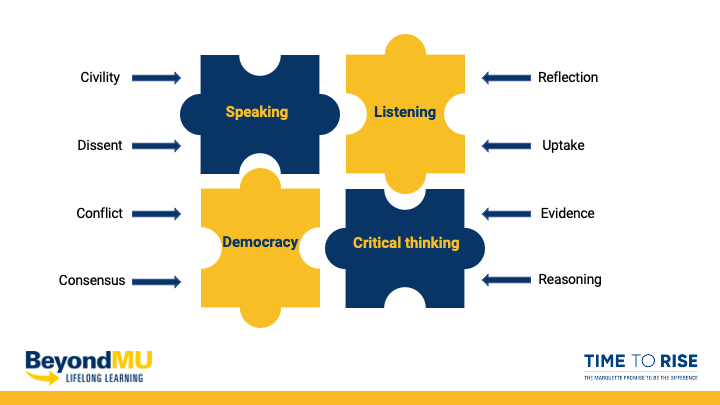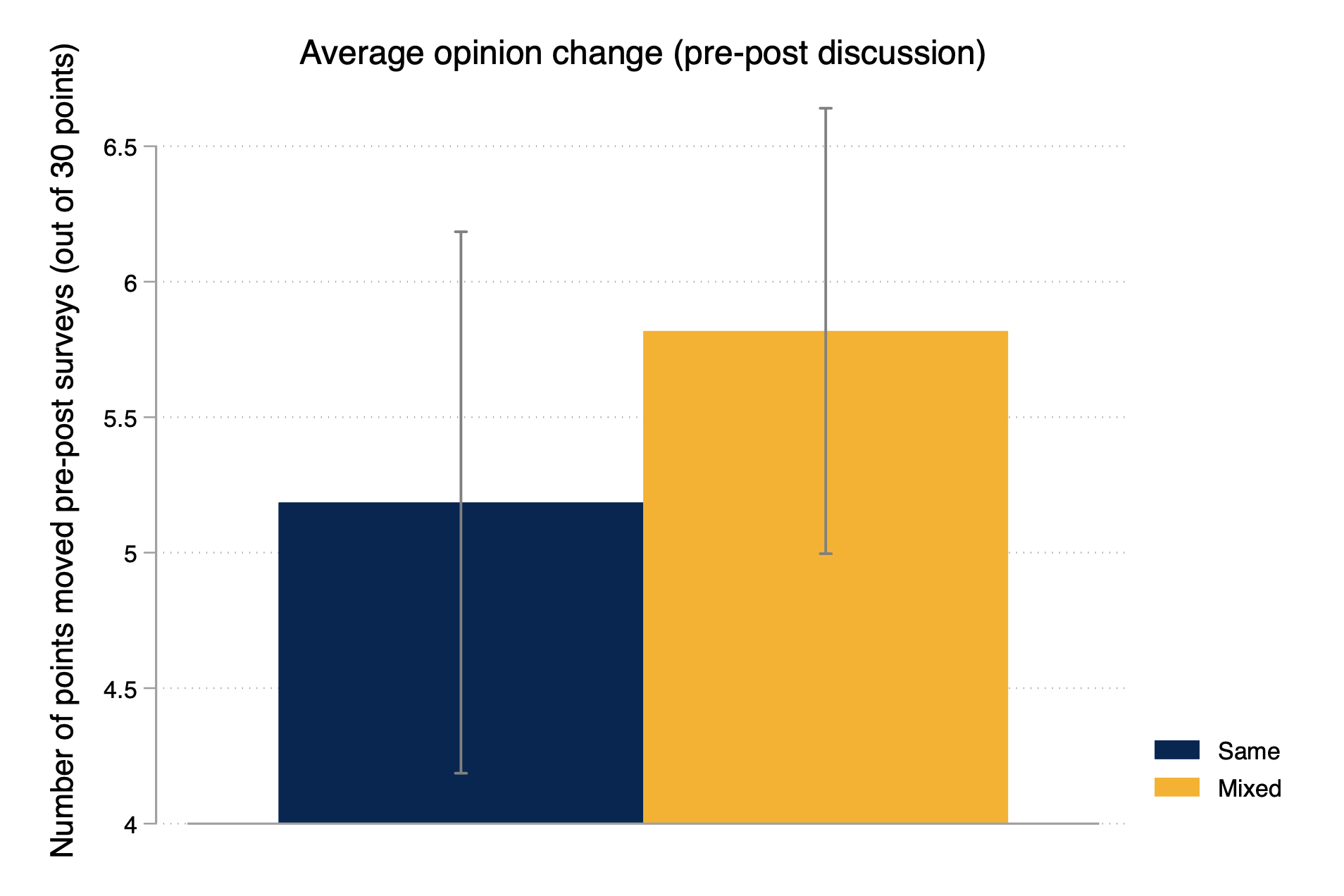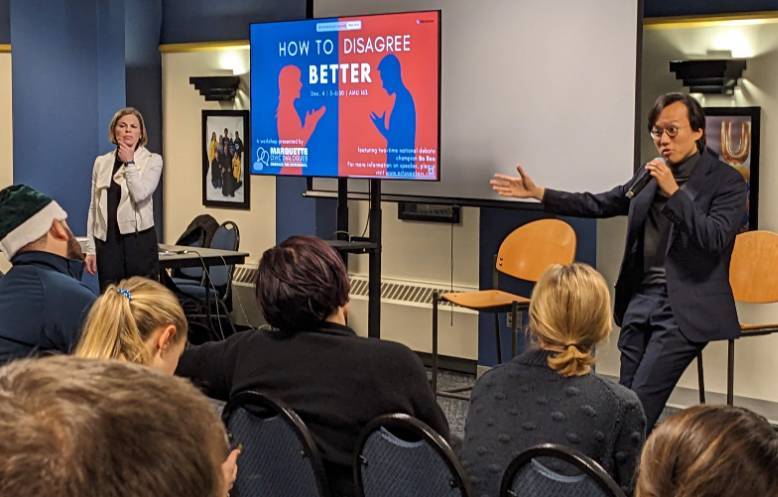
The Marquette Civic Dialogues program focuses on developing students' civic skills, including:
- communicating across lines of difference;
- engaging in deep and active listening;
- weighing different points of view and examining available evidence;
- collaborating with others and resolving conflict.
Research Study
In Spring 2021, Prof. Wichowsky and Shir Bloch (Arts' 23) conducted an experimental study to assess how viewpoint diversity within groups affects student perceptions of dialogue. They recruited Marquette students to participate in an online discussion about economic inequality and opportunity. Students completed a pre-survey and were randomly assigned to discuss the topic with like-minded peers (same) or with peers from different ends of the political spectrum (mixed). Conversations were recorded and transcribed to examine the network of ideas that emerged in the dialogue.
Key findings:
- There was slightly more opinion change (pre-post dialogue) among students assigned to the politically mixed groups compared to students assigned to the politically like-minded groups.
- Although all students reported positive experiences with the dialogue, student satisfaction was higher, on average, among students in the like-minded groups.
- Students in the politically mixed group expressed less comfort with the conversation and were less likely to say that the conversation affected their views on the topic.
- However, students' perceptions did not necessarily reflect reality. There was a wider range of considerations brought to the conversation in politically mixed groups and we found no evidence that liberal and conservative students were talking past one another. Rather, they engaged – and elaborated on – each other's ideas.


Note: Bars reflect average response in each treatment group (95% confidence intervals shown).







